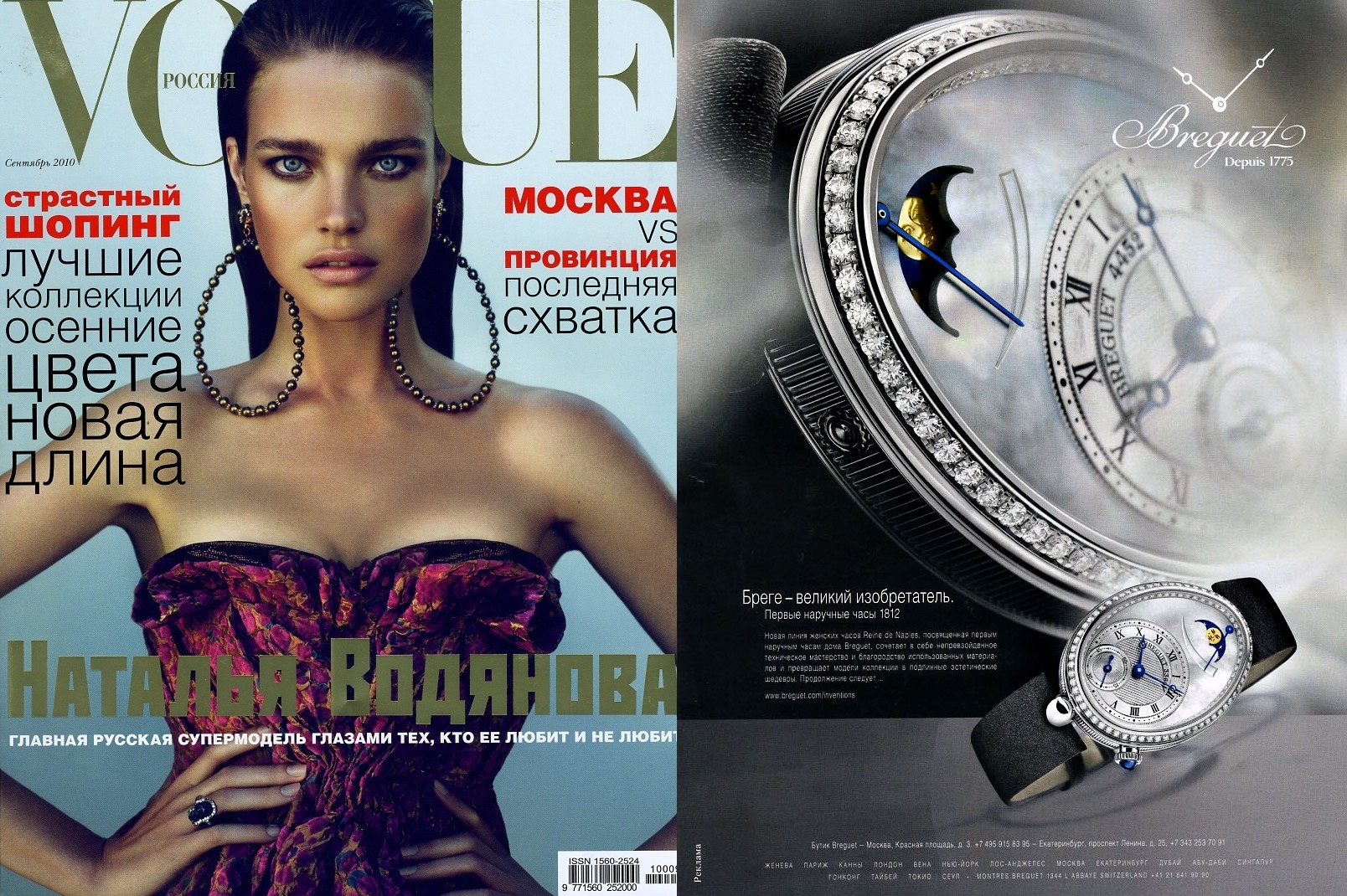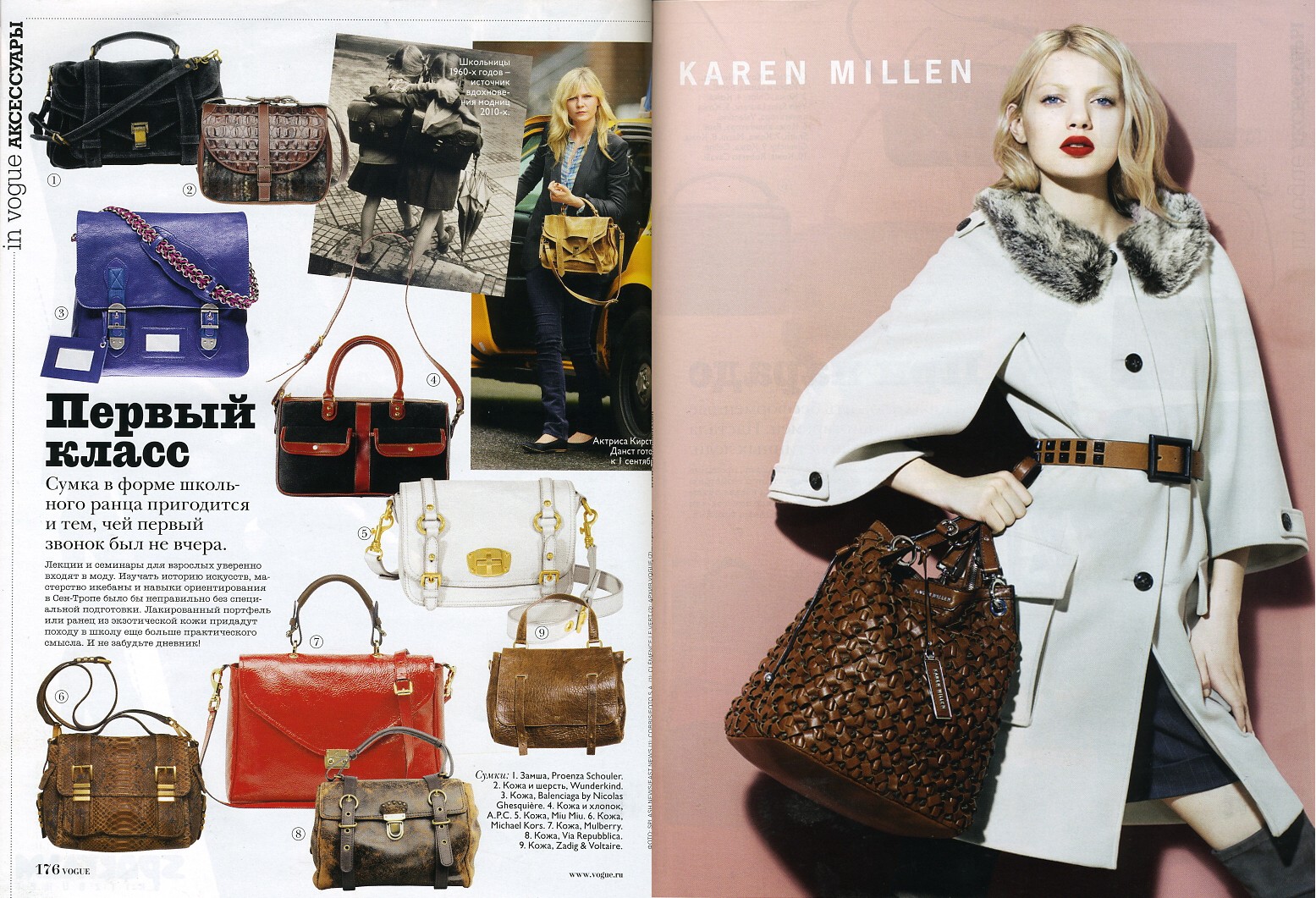
Tells us why Russia's resilience through the crisis could spell opportunity for luxury brands that haven't even entered the market yet
Tells us why Russia’s resilience through the crisis could spell opportunity for luxury brands that haven’t even entered the market yet.
If anyone is in a position to offer hope that the tentative signs of recovery seen so far this year might go deeper than just the surface, it is Natalia Zorina. Not too long ago, this 27-year old Muscovite was at the epicentre of the luxury boom.
Russia, where Zorina was selling ad pages for what is arguably the most elite fashion magazine franchise in the world, was rated ‘white-hot’ among emerging markets. It was also one of the few places in the world where the publishing sector was still on an upward swing, bucking the global trend of an online media exodus which made conventional publishing an ever more challenging proposition.
Zorina had the ultimate profile for a saleswoman in a newly resurgent Russia: a former model with an MBA and economics degree who had left a promising career at IBM because she says she felt “quite comfortable in the ambitious magazine world despite the fact that it’s a rat race”. But perhaps best of all, Zorina was responsible for the fine jewellery and timepieces division, meaning that she was selling advertising space to international brands with resolutely high hopes, big budgets and heady expansion plans for their businesses in a country famous for its love of big baubles.
Then one day Zorina woke up like the rest of us to find the global economy in tatters. Only the difference for this ad sales manager at Russian Vogue was a question of degree. Practically overnight, she found herself no longer at the crossroads of three El Dorados but at the precipice of three of the luxury industry’s hardest hit markets: fine jewellery, publishing and Russia.
“ There was a huge amount of pressure on our advertisers and consequently on us too ”
“There was a huge amount of pressure on our advertisers and consequently on us too,” says Zorina. “The jewellery sector suffered more than any other for us in 2008 so our consumers took a break in spending, realising that indeed it was possible to survive without buying jewellery and watches for a while, unlike gourmet food or even designer clothes which a luxury client tends to keep buying.”
“To make matters worse, there were still Russia’s high customs duties for these products, so it became even more clear that if you wanted to buy an expensive watch, it would be much cheaper abroad than in Moscow.”
But Zorina remained optimistic and kept her existing advertisers as contented as she could with extra perks by helping them to take part in other marketing opportunities through Vogue such as the Moscow Film Festival, Moscow’s Fashion Night Out and various charity dinners.

“I believe for every sales person, the proudest moment is when you close the deal and at the same time you remain friends with your clients,” she says, suggesting that during that period she had to work even harder to maintain such relations. “That was the trickiest and most challenging moment, because each client is different and you need to have an individual approach to them all.”
The luxury market languished for the next 16 months in Russia and the mood around the rest of the world continued to be less than rosy. But now that so many global luxury indicators are finally pointing in the right direction again, what are the signs from Zorina’s desk at Condé Nast headquarters in Moscow, two years later?
“Starting this year, we began to feel the reinvigoration of the market,” she says. “We’ve seen increases in ad volume and the arrival of new clients as well.”
Zorina,who now oversees fashion accounts as well as jewellery and timepieces, suggests that part of the country’s resilience can be explained not only by studying market indicators – but also from the now fully-formed consumerist psyche among its people.

“That early period – one that was based on a pure ‘culture of spending’ and where there were no limits – has evolved. And although Russians are indeed much more sophisticated and humble in their outward sense of style, they are still big spenders. This certainly applies to the luxury market and it is in spite of any continued economic stagnation. I believe the only other markets which can compete in terms of their enthusiasm for spending are Japan and Arab countries.”
Like many others in her native Moscow and beyond, Zorina is philosophical about the effects of the crisis in so far as it has cleansed the market of what she calls “bubble companies and brands”.
“The economic situation put everything into perspective and into place. One peculiarity that we’re now finally feeling in Moscow, is that some of the major luxury brands we thought were luxury may not actually be a luxury anymore," she says.
“They became such a sensation here and were vastly oversold. This might mean that a few newcomers with good business strategies could eventually take their place in the market and help redefine luxury for us in the process while they are capitalizing on opportunities.”

